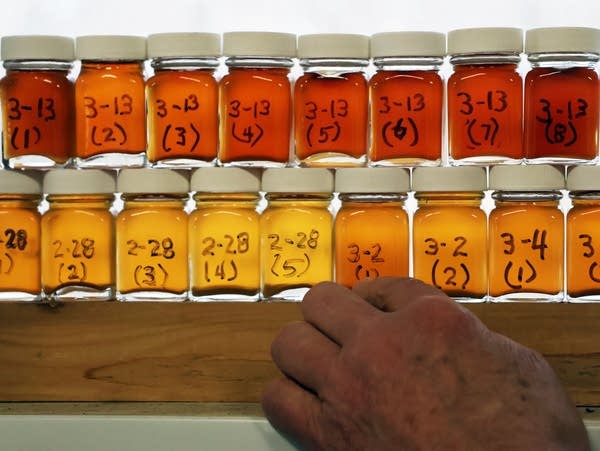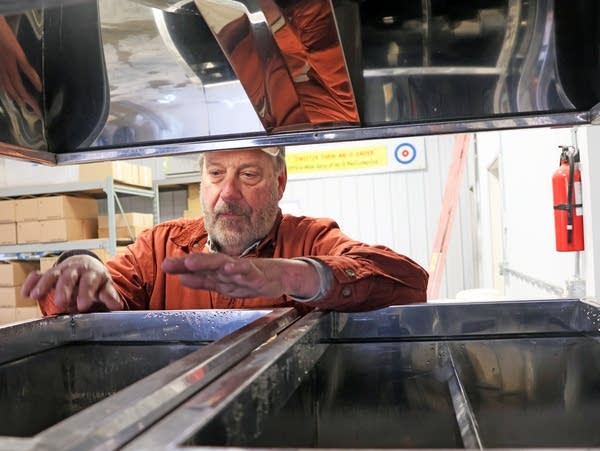
Truth Social will start trading on Tuesday. Trump stands to earn a fortune
March 25, 2024
Meta is limiting how much political content users see. Here's how to opt out of that
March 26, 2024This spring marks 25 years since Stu Peterson first tapped a maple tree on 190 acres of land on Star Lake, on the western edge of maple syrup territory in North America.
The site was once a boys camp called Camp Aquila, and the Petersons kept the name for their maple syrup business. Blue tubes stretch through the woods like webs glowing in the sunlight, connecting 1,300 taps drilled into trees to large containers where sap is collected on warm spring days.
Every sap season is different, with this year a record early season.
“We boiled our first boil on February 26. That’s the earliest in our 25 years,” said Peterson. “That’s in such sharp contrast to a year ago, when our first boil was April 18. I mean, just two years, back to back, the earliest and the latest.”
Being selected to the North American Maple Syrup Hall of Fame is an honor said Peterson and likely the result of years of being engaged in various industry organizations.
A few years ago he helped create an educational program at Maplewood State Park where trees are tapped and sap is boiled to the delight of school kids who get to taste test the syrup on ice cream.
The Hall of Fame recognition more often goes to the maple syrup heavyweights.
Canada produces 80 percent of North American maple syrup and states in the northeast produce much of the U.S. syrup.

“And Minnesota hardly ranks within total commercial production in the US, said Peterson. “It’s all a matter of scale. We sit here at 1,300 taps and think we’re pretty big. And we are in this part of the country. They’d look at me and call me a hobbyist in Vermont. A single producer in Vermont is producing more than all of the state of Minnesota.”
Peterson still enjoys the short, intense sap gathering and syrup boiling season and at 77, he plans to continue “as long as it’s fun.”
Previous Minnesota maple syrup honorees were John Kroll, a producer from Long Prairie in 1996 and Carl Vogt, a University of Minnesota Extension Specialist in 2011.





